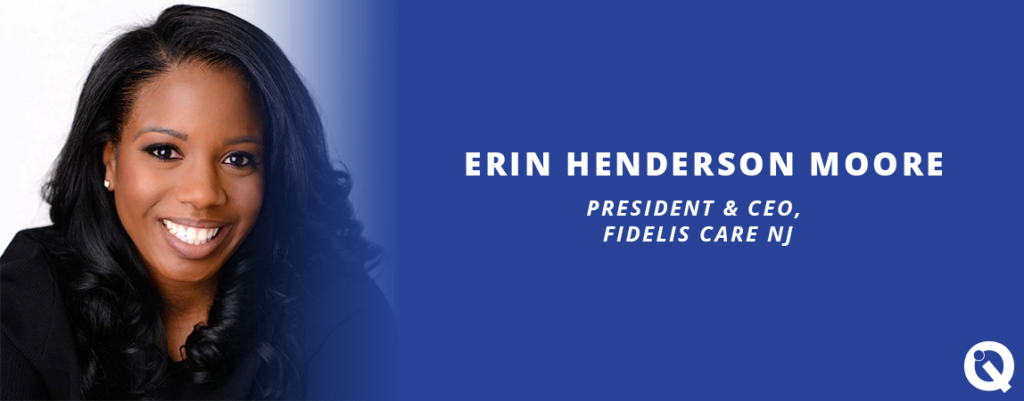Erin Henderson Moore is the President & CEO of Fidelis Care NJ.
You have a long history working in Medicaid managed care organizations (MCOs), most recently in Washington, D.C. What prompted your interest in managed care?
My interest in managed care has been profoundly shaped by my professional experiences and my desire to make a positive impact on health care delivery. I’ve witnessed firsthand the transformative power of effective care coordination and managed care models. What drives me is the ability to enact systemic change and enhance quality of care on a large scale. I want to ensure that members receive the right care at the right time. And I’m drawn to the challenge of implementing successful care models and really working with state and community partners to ensure the models are working as expected, and that they are driving person-centered health care.
In your new role, can you share one or two of your top priorities for Fidelis Care NJ?
My number one priority is building a high-performing team that reflects the communities we serve. I’m happy to report that over the past six months, we’ve made significant progress, but we’re always seeking top talent who share our passion for impacting systemic change on a large level.
My second priority is making Fidelis Care NJ the health plan of choice for individuals with complex health care needs. These could be people in need of long-term services and supports. We’re committed to providing resources such as home health aides and support services to enable people to live safely in their homes for as long as possible.
Another example is children with complex health needs, particularly concerning behavioral health. Early intervention can significantly alter their life trajectories. We’re dedicated to addressing the needs of people to improve outcomes across all age groups.
Focusing on quality and health equity, what steps do you think MCOs can play to address the racial, ethnic, and socio-economic disparities we see in health outcomes?
I always appreciate when people ask questions about health equity. MCOs are in a unique position to address disparities. So, here’s a couple of thoughts I can share. One is using comprehensive data and analytics to identify and understand health care disparities among different demographic groups. By pinpointing specific areas, MCOs can develop targeted interventions. Additionally, actively engaging with local communities and forming deep partnerships with community-based organizations allows us to gain insights to develop culturally relevant interventions. And then there is developing and implementing health interventions that address the needs of different racial, ethnic, and socioeconomic groups. These are just some of the strategies that allow MCOs to play a real role in driving down health care disparities.
How does Fidelis Care NJ plan to collaborate with organizations like the Quality Institute to improve health care quality, safety, and affordability?
We’re committed to working with the Quality Institute and their members, and believe collaboration allows for the most diverse perspectives to come to the table to drive effective solutions. I’m newer to the market, so I want to get involved and hear about different perspectives, different efforts to implement best practices — and to share our best practices and safety protocols. We’re also excited about some of the innovative care models that the Quality Institute is advancing. We’re open to exploring and perhaps implementing those to prioritize patient outcomes and experiences. Examples include new technology, new care coordination approaches — and we support advocating for policy change when necessary.
Finally, we like to ask a question beyond a person’s professional life. If you could choose anyone throughout history or anyone alive today, who would be your hero?
Oprah Winfrey has been a source of inspiration for me. As a black woman in leadership, Oprah has defied stereotypes and carved out a path that transcends racial and gender limitations. Her journey to becoming a media mogul serves as a testament to her resilience, her tenacity, and the power of self-belief. I try to model my own leadership style off Oprah’s authenticity, empathy, and genuine connection with people.

